Writing With Dignity, Agency and Respect for the People We Serve Is Necessary
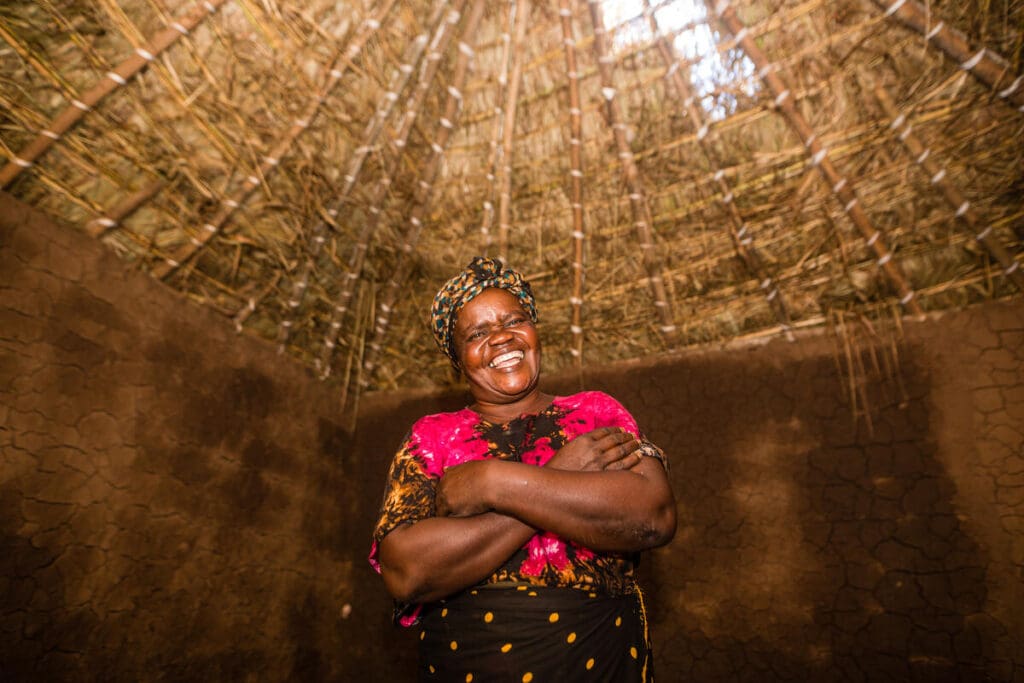
By World Food Program USA’s Senior Director of Marketing, Brand & Digital Advertising Elyse Wallnutt
10 years ago, I was serving a lunch shift at Denver Rescue Mission, a nonprofit dedicated to helping people who are experiencing homelessness and addiction, when a man came through the line and thanked me for saying hi to him. He said it’d been about three weeks since anyone had even looked him in the eye. As a person experiencing homelessness, he said this avoidance made him feel less than human.
I think about him often, especially as conversations come up more frequently in the nonprofit space about how we communicate our work through the lens of diversity, equity, inclusion and justice. For example, what does it mean to use a word like “vulnerable” to describe a person? Who are we centering as the hero in the stories we tell? How do we correct problematic phrases that imply we “give” people a voice?
While we’ll never be perfect in terms of how we communicate, I believe it’s our responsibility to create the space to pause and ask ourselves if we’re treating each other with dignity. It’s the only way we can, in good conscience, say that we’re doing our best.
That’s why World Food Program USA’s marketing and communications team recently created a shared framework and vocabulary for its creative content. We intentionally pushed ourselves to have courageous and challenging conversations about our own biases and assumptions as a first step in this ongoing work. We came away with a renewed commitment and better understanding of how to share the stories of the people we serve with respect, agency and complexity of the situations they face.
In partnership with Maria Estrada, Ph.D., we drafted shared team agreements that resulted in an updated version of our style guide, which you’ll find below. We’ve decided to make this section of our style guide public in the hopes that it helps other people in the nonprofit space engage in their own conversations.
Answering this question is difficult: How do we avoid framing ourselves as saviors when we work in the most extreme humanitarian contexts? But it is imperative for any nonprofit marketing team to ask it, and I’m grateful for Maria’s leadership in helping us take meaningful steps toward the answer.
Excerpt From World Food Program USA’s Style Guide for Writing With Dignity, Agency and Respect for the People We Serve
The following often-used words and phrases should be used with care and approached with anti-tokenism and respect for the people we support. Our ability to add nuance and context to these terms is a product of space, and we commit to including as many details and as much specificity to contextualize these terms whenever space allows. Content creators should use “people first” language to avoid labeling our beneficiaries with descriptors that are a result of their circumstances and thus are subject to change.
Saving Lives, Changing Lives; Lifesaving
a. This is the United Nations World Food Programme (WFP)’s tagline and is the highest-level summary of our work, which is backed by data.
b. The word “lifesaving” should be contextualized whenever space allows and used only when the programs we’re describing are directly preventing starvation/famine.
c. Be considerate of how “lifesaving” is paired with images and stories, taking care to place our beneficiaries at the center, as opposed to our staff.
The Word “Vulnerable” When Used With Respect to Populations
a. We recognize that people experience vulnerability and poverty due to external factors beyond their control. They are not inherently vulnerable. Therefore, we should contextualize this term so we don’t imply a permanent or personal state of being.
b. Avoid leaving room for interpretation, especially with words like poor, desperate and scared.
c. Use the language of the people we’re supporting, ideally with direct quotes, and of the communities leading these conversations (e.g., the deaf community, the LGBT community, the Native American community).
d. Use “people-first” phrases to describe what our beneficiaries are experiencing. For example, “communities facing hunger,” “people experiencing vulnerability,” or “families who’ve been displaced.”
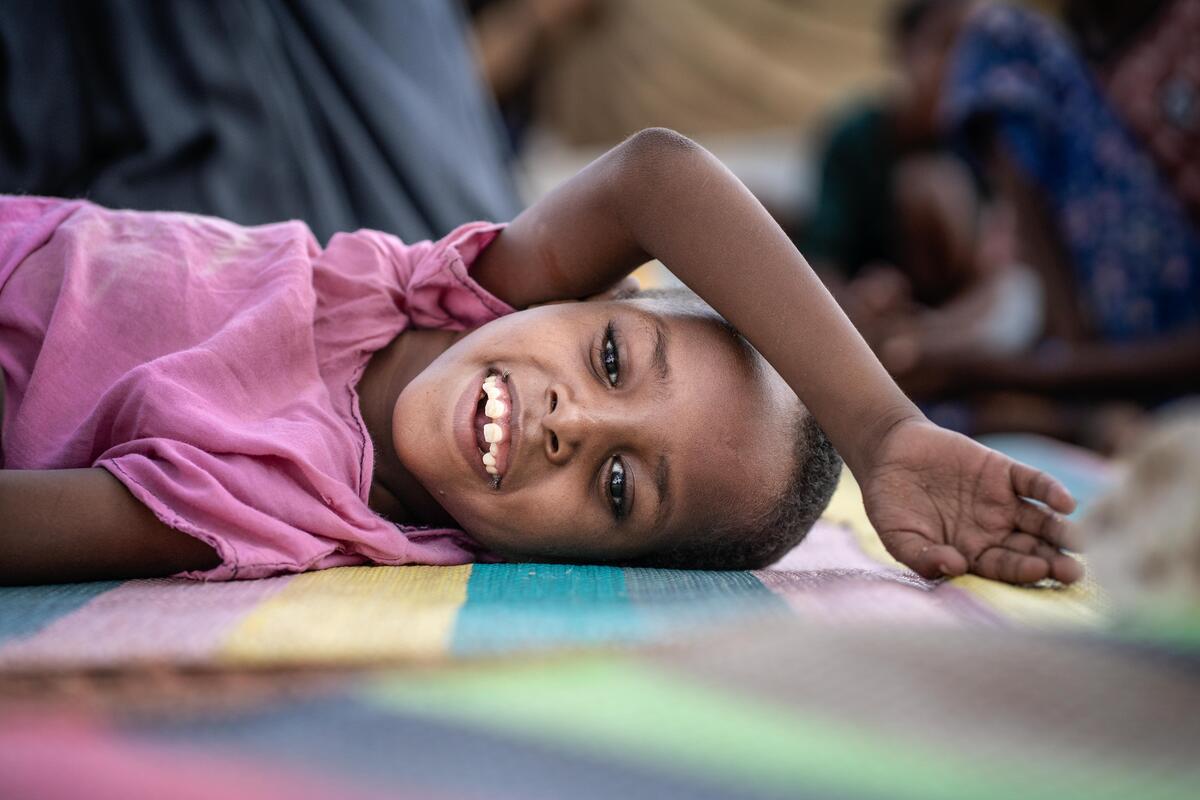
World Food Program USA uses “people-first” phrases to describe what our beneficiaries are experiencing.
Equity vs. Equality
a. Equality/fairness means everyone is treated exactly the same way, regardless of need, background or individual difference. Equity recognizes that everyone begins life from a different place in society, thus they need different things to succeed.
b. The U.N. World Food Programme’s work is focused on both equity and equality, depending on the population and program area. Be sure to choose the appropriate word in your writing.
“Help”
a. The world help can sometimes be interpreted as paternalistic. In most cases, we prefer the word support. Alternatives also include enable, provide, empower, connect, strengthen, facilitate, bolster, etc.
b. Rather than speak generally of aid/help/support, specify the program being discussed and the concrete changes being made. For example, “The U.N. World Food Programme trained 400 farmers how to use hydroponics so they could grow crops despite regional drought.”
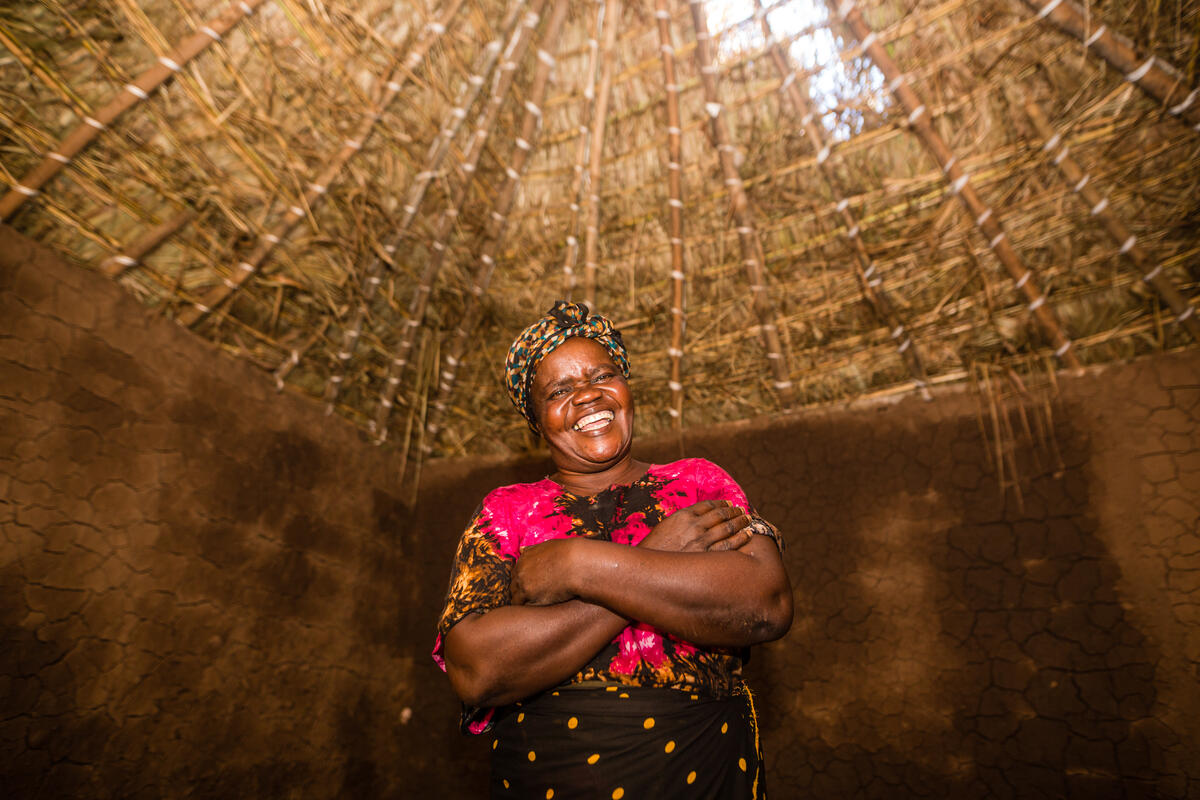
The U.N. World Food Programme’s work is focused on both equity and equality, depending on the population and program area.
Beneficiary
a. We use this term because it’s the most appropriate way to describe the broad and varied impact of our work. For example, a person whose life is made better from our drone imaging has benefited from our work. It is also acceptable to say “the people we serve.”
b. However, reserve using the word beneficiary(ies) for describing a diverse set of programing or groups of people we serve. If you’re describing a specific person/group of people, name them explicitly. For example: mothers in Yemen, farmers in Ethiopia, Jessica in Haiti.
c. Alternatives such as participant, customer, partner or recipient should only be used when those terms precisely describe the nature of our relationship with them. For example: “a local delivery partner” or “a participant in a pilot project.”
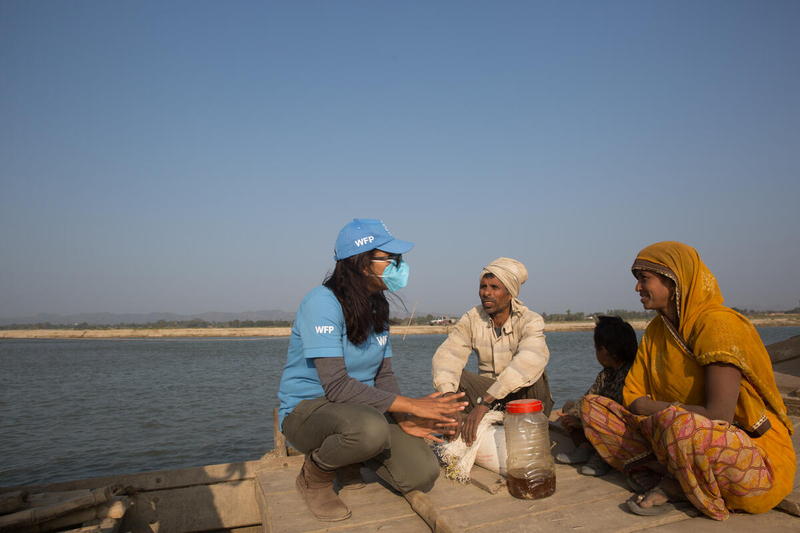
The U.N. World Food Programme serves over 100 million people in over 80 countries every year.
Words That Describe a Person’s Emotions or Temporary State of Being
a. Words like scared, desperate, poor, helpless, powerless and victim should be used rarely, cautiously, and only when we have objective data or sources to verify them.
b. If a person said they were feeling [insert adjective], then it’s okay to use those words in our text. However, we should not presume to know how people feel without them stating their emotions. The word victim could be used when circumstances clearly call for it, such as populations affected by violent conflict or abuse. In all cases, take care not to frame these terms as a permanent state, personality trait or personal failing.
c. Differentiate between speaking on behalf of one person or a group of people.
Words That Refer to a Person’s Autonomy
Don’t use phrases such as “The U.N. World Food Programme gives people a voice” or “makes people more productive.” The insinuation is demeaning, demoralizing, and simply untrue. Nobody can give someone else a voice or make someone more productive. Instead, rewrite these phrases to communicate people’s inherent agency. For example, you could restructure the above phrases to say: “The U.N. World Food Programme amplifies their voices” or “The U.N. World Food Programme provides access to resources that enable farmers to grow more food.”
Developing or Third-World Countries
a. Replace with low-income, middle-income or rewrite the sentence to avoid the term entirely.
b. Alternately, be specific by saying: “Countries where people live on less than $X dollars a day.”
c. Similarly, words like exotic or ethnic are not currently used in our writing nor should they ever be.
Mankind/Manpower/Man-Made
a. These terms are gendered and exclusionary to women and non-binary people. Always replace with humankind or humanity, staffing or workforce, or name the population specifically to which you’re referring (ie, students, political leaders, Afghans, etc.).
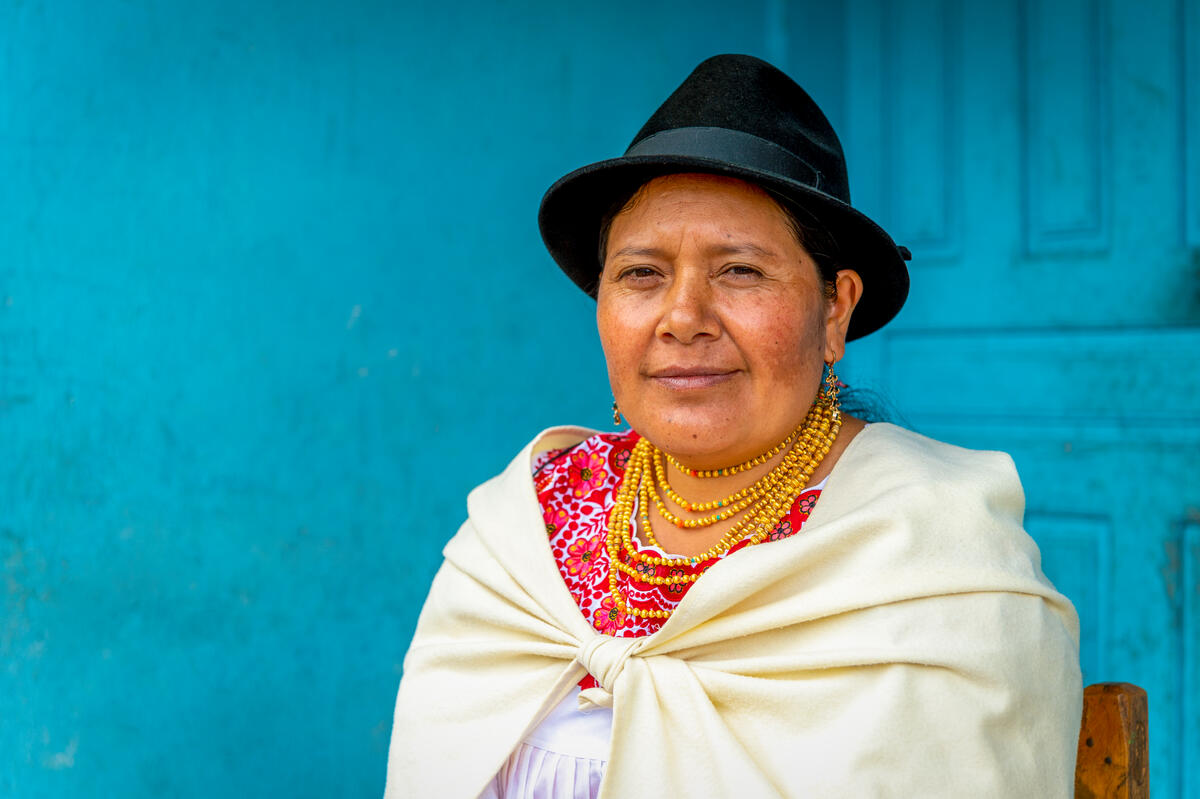
The U.N. World Food Programme remains deeply conscious of reaching those most affected by hunger due to factors such as race, color, nationality, ethnic origin, gender, indigenous heritage or disability status.
Resilience
a. This term is appropriate and accurate to describe many of our programs, but most of our work takes place in emergency contexts. Self-sustaining livelihoods are the welcome – and intended – byproduct of programs that are chiefly aimed at preventing short-term, severe hunger. For example, our school meals program certainly has broad positive impacts on communities in the form of educational attainment and earning potential, but their primary purpose is to ensure that children don’t go to sleep hungry.
b. When using the word resilience, pair it with concrete examples of the programing to which you’re referring. For example, “Half-moons in Niger are helping rehabilitate dry land so it can be used to plant crops.”
Indigenous; Native
a. Always capitalize the words indigenous and native when referring to a specific group of people who originated in a region. For example: Bolivia’s Indigenous peoples represent some 62% of the population.




